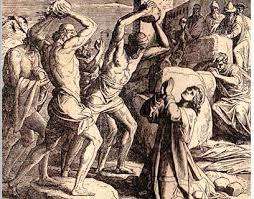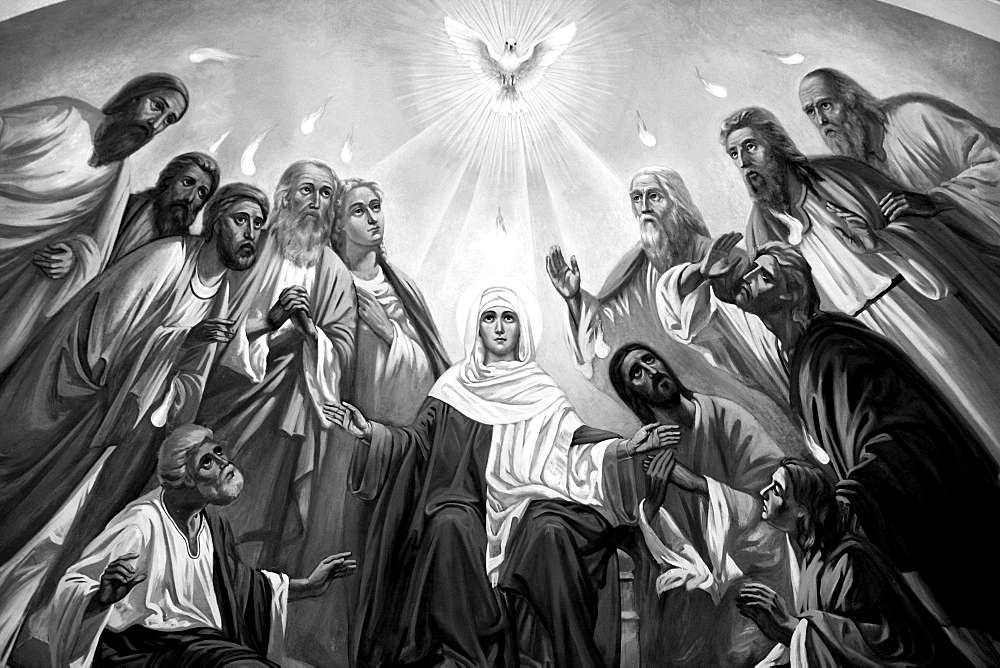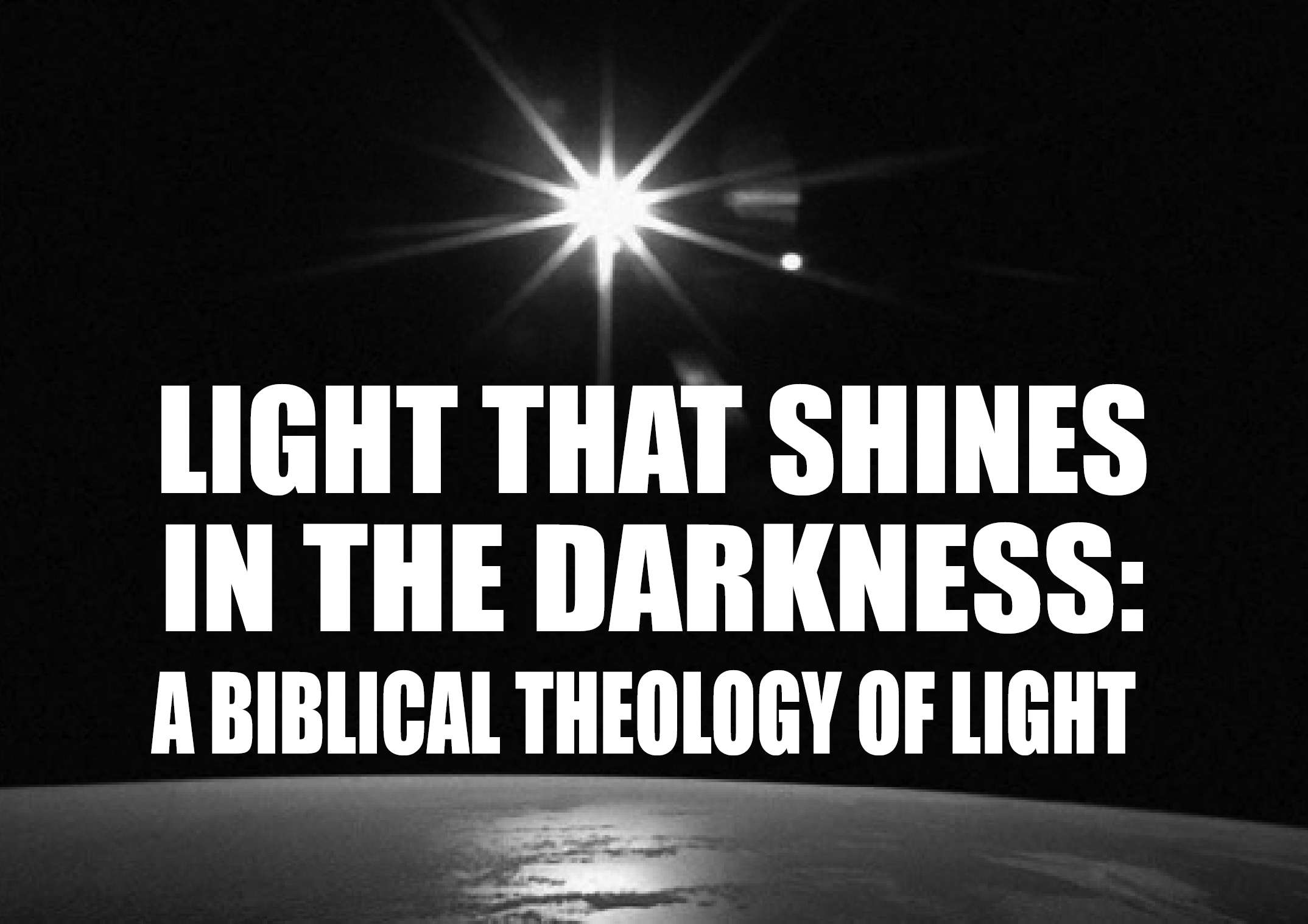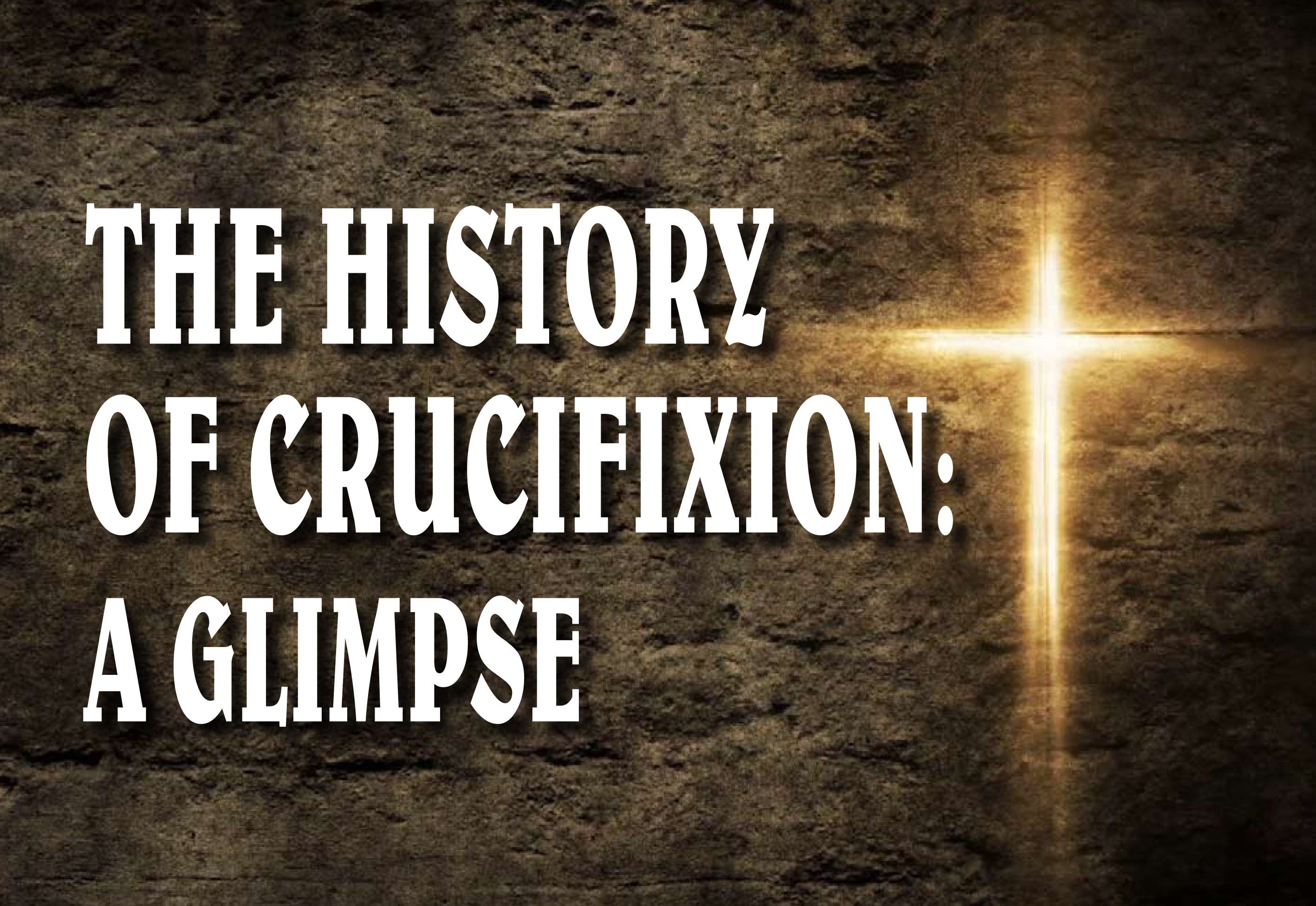

Violence Versus Peace: Jesus in His Context
Dr. Shaibu Abraham
The world is undergoing tremendous changes in every realm and very often these changes pose a threat to the peaceful existence of humanity. As we look into the political, social and religious spheres, this observation is true in every sense. The major religions of the world, whether it is in the East or West, overtaken by certain fanatic ideologies resort to violence and destruction. Even though we cannot blame religion per se for this predicament, certain doctrines/belief systems have been misinterpreted and justified in support of violence. Terrorist killings, communal riots, social unrest triggered by ethnic and caste differences are norms of the day. It seems that violence and destruction of life has become a part and parcel of life and we take it for granted. Yet we should not forget the fact that the victims of violence would never get back to a normal life and they long for peace and wellbeing. In such a situation, what is the role of Christian community? Do we see any model in the Bible that can bring a change in such situations?
1.0. First Century Palestine: A Violent Society
As we turn to the Bible, especially to the New Testament, the Jesus movement acted as a counter movement in the context of political, ethnic and religious violence. The violent interaction between Jewish population and the Roman imperial powers that occupied Palestine were vicious. The religious ideology and the temple politics got mixed together to become a deadly cocktail for killing and destruction. The Jewish revolutionary groups who were perpetuating violence for self-rule brought bloodshed and untold miseries to common people. In such a context, first Jesus and later the early church acted as peace makers. Here we will have a glimpse of the first century context and then have a look at how Jesus responded in such a situation.
1.1. The Roman Empire and Violence
The Romans determined the conditions of life in Galilee where Jesus lived and carried out his mission. In the decades before Jesus was born, Roman armies marched through the area, burning villages, enslaving the able-bodied and killing the infirm. Romans appointed the young military strongman Herod as king and installed Herod's son Antipas, to rule over Galilee. Roman governors such as Pontius Pilate appointed and deposed the high priests who ruled Judea from their base in the Jerusalem Temple.
For generations both before and after the ministry of Jesus, the Galilean and Judean people mounted repeated revolts against the Romans and their client rulers, the Herodian kings and Jerusalem high priests. The Romans believed that their own national security depended on the subjection of other peoples and the extraction of tribute, which was a symbol of humiliation as well as a source of revenue. They were afraid that any sign of weakness, such as failure to punish a revolt, would invite further insurrection. The Roman armies purposely devastated the countryside, burned villages, pillaged towns, and slaughtered and enslaved the people. As the Roman historian Tacitus, a Caledonian chieftan, exclaims, “[The Romans are] the plunderers of the world... If the enemy is rich, they are rapacious, if poor, they lust for dominion. Not East, not West has sated them...They rob, butcher, plunder, and call it ‘empire’; and where they make a desolation, they call it ‘peace.’” The Gospels' portrayal of Jesus' crucifixion is an example in which the slow, torturous public execution of rebels in prominent places designed to terrorize the surviving population into acquiescence in Roman domination, is clearly brought forth.
1.2. The Herodian Rule and Violence
When Herod, appointed by the Roman Senate, came to conquer with the help of Roman troops in 40 B.C.E., Judeans and particularly Galileans mounted repeated guerrilla battles against him. Because of the widespread resistance, it took him three years, and finally had his troops simply slaughter the people who failed to submit. He established an intense network of security, secret informants, and brutal punishments such as burning alive those who resisted-what today would be called a “police state”. The story of “the massacre of the innocent infants” in the gospel of Matthew is the best example. Thus, just about the time Jesus was born, the Romans wrought devastation and death in the area that included villages such as Nazareth. Many villagers in the area would have lost relatives and friends and perhaps seen their villages ravaged.
The Herodian kings and Jerusalem high-priestly families simply collaborated with the Roman rule. Because of their position as client rulers for the Romans, the Herodian kings and Jerusalem high-priestly rulers were as much the targets of popular resistance as were the Romans. Among the ordinary people many Jerusalemites would have been economically dependent on the Temple apparatus, directly or indirectly. Through much of Herod's reign and for nearly three generations after, for example, thousands of people were employed in the massive reconstruction of the Temple complex. However, these rulers may have been compromised in the eyes of many Jerusalemites, who might well have opted to defend their traditions against the high-priestly officers of the temple-state.
1.3. Jewish Renewal Groups and Violence
In the mid-first century, several movements of deliverance from Roman imperial rule in Judea took the form of popular prophetic movement. Like several other prophetic figures who led their followers out into the wilderness in anticipation of new divine acts of deliverance, Theudas “led the masses to follow him to the Jordan River,” stating that “at his command the river would be parted and would provide them an easy passage”. In similar fashion, “a man from Egypt,” claiming that he was a prophet, led his followers up to the Mount of Olives, asserting that at his command the walls of Jerusalem would fall down, providing them an entrance into the city. Again large numbers of peasants proved capable of collective action, under the inspiration and leadership of prophets like the great heroes of Israel’s origins. In such a perspective we should place Jesus’ mission and ministry in the Jewish Palestine.
2.0. Jesus in His Context: Paradigm of Peace
Jesus, however, not only directly and repeatedly challenged the dominant socio-political, ethnic and religious paradigm of his society, but also advocated an alternative vision. The gospel narratives make it amply clear that Jesus visualised a paradigm of peace which countered the existing violent paradigms of his society. Instead of an exclusive ethno-centric patriotic feeling, Jesus provided an all-encompassing, communitarian ideal that includes women, children, outcastes, Samaritans and gentiles. However, these communitarian ideals were not merely based on modern universal principles of equality, liberty and fraternity but rather they were the essential ideals of the reign of God. The kingdom values Jesus espoused were opposite to the dominant ethos of the Roman rule.
2.1. Jesus: The Agent of the Kingdom of Peace
Unlike the popularly acclaimed leaders who led the messianic movements, however, Jesus did not lead a revolt. He rather followed in the Israelite prophetic tradition of “speaking truth to power” in the traditional prophetic forms of pronouncing and symbolically acting out God’s condemnation of exploitative rulers and ruling institutions. Jesus was no zealot and he rejected the vengeful nationalism of some apocalyptic seers. The enemy was to be loved, not destroyed. He entered Jerusalem riding no war horse but a donkey (Zec 9:9-10); no holy war but peace to the nations. He was no Sadducean collaborator either; the temple cleansing was a political act in protest against the those who used their authority to become rich at the expense of the poor. Jesus envisaged a kingdom that is based on truth, peace and non-violence and he was born as a "king to testify to the truth" (Jn. 18:37). Among the Gentiles (the Romans) "those who are recognised as their rulers, lord it over them and their great ones tyrant over them". However, in the reign of God, "whoever wishes to become great must be a servant and whoever wishes to be first must be a slave". (Mk 10:42-44).
2.2. Jesus Transcends Ethno-centric Boundaries
Jesus was also absolutely against the Jewish nationalistic idea of Israel's revenge against nations. He spoke against their ethno-centrism and purity consciousness which relegated Samaritans and the gentiles. He was ready to go to a Samaritan town and converse with a socially untouchable woman and he stayed in there for two days (Jn. 4:39-40). Once he strongly rebuked his disciples' ethno-centric revenge spirit against the Samaritans as they wanted to bring down fire from heaven to burn a Samaritan village altogether for not allowing them to pass through the village (Lk. 9:51-56). In the story of the good Samaritan, Jesus metaphorically praises the virtue of a Samaritan who was considered as an outcaste by the Jews and depicts him as a neighbour (Lk. 10: 25-37).
2.3. The Sermon on the Mount: The Credentials of the Kingdom of Peace
In the Sermon on the mount we see Jesus' teaching on non-violence and all-encompassing love for all irrespective of nationality, ethnicity, religion or culture. In the Roman world, wielding political power and acting violently for gain is considered as greatness; however, in the reign of God the meek and the peace makers are the blessed (Mt. 5:5). In contrast to those who exploit people with political and socio-economic power (Roman officials and local elites) or those who oppress them with socio-religious power (the Pharisees and scribes), Jesus teaches his disciples to practice mercy (Mt. 5:8). He strongly speaks against anger which is the root cause of murder (Mt. 5:21-22) and overturned the Jewish dictum "an eye for an eye, and a tooth for a tooth" but asks his followers to "show their left cheek if anyone strikes on the right" (Mt. 5:39). His listeners are urged to avoid any confrontation with the Roman occupation troops; instead as a voluntary gesture, "carry a soldier's pack for two miles, if he forces anyone to carry it one mile" (Mt. 5:41). They are also exhorted to love and pray for the Roman rulers and troops who are their political and religious enemies who persecute them constantly (Mt. 5:44).
3.0. Jesus in the Perception of his Followers: The Messianic King
The followers of Jesus, especially the disciples, however, largely coming from the ordinary classes of Galilean villages, had a great longing for freedom from the oppressive Roman regime. Above all, they had a religious and theological notion that a messianic figure would come and rescue them from the existing domineering powers that stand against their freedom and a larger political rule. This idea of a popular messianic expectation can be clearly visible in many instances. In his first encounter with Jesus, Andrew, one of the disciples, acknowledges Jesus to be the "messiah" (Jn.1:41) and similarly Nathanael terms Jesus as "the king of Israel" (Jn.1:49). Even a controversy broke out among them that generated anger and division to decide the position they would occupy when Jesus became the king. They dreamt of a kingdom in which Jesus is the ruler and they are seated to the right and left of His throne. (Mk. 10:35-45). Again in the narrative of the feeding of the five thousand, the crowd was ready "to take him (Jesus) by force to make him king" (Jn. 6:15).
3.1. Jesus as the agent of a Political Kingdom
As the ministry of Jesus expanded wide and large, attracting great crowd, the disciples began to articulate and express their desire to establish a Jewish kingdom vigorously. While Jesus was in his final journey to Jerusalem, he told his disciples in unambiguous terms that he would be handed over to the Romans by the elders, chief priests and scribes and face suffering and violent death. However, Peter took Jesus aside to express his feelings to his Master, but only to be rebuked by Jesus. It is obvious that Peter was expecting Jesus to establish the messianic kingdom in political terms as he reaches Jerusalem (Mk. 8:31-33). It is interesting to see that the author of the Gospel of Mark places Jesus' predictions of his suffering and death followed by disciples' ambition to become great among themselves in the coming rule (Mk. 9:30-37; 10:32-45). Even after the resurrection, the question they posed to Jesus was the timing of the restoration of the kingdom to Israel (Acts 1:6). However, Jesus totally rejected such a political kingship. He came as a suffering messiah who would serve others and "give his life as a ransom for many" (Mk. 10:45). Jesus' idea of the kingdom and its ideals were diametrically opposite to the prevailing Jewish expectation of the messianic rule. It was open to all and the essentials of the kingdom were peace and acceptance of all.
4.0. The Early Church: A Proactive and Peace-making Community
This inclusive vision of Jesus’ activity was later fully internalised and reflected in the early church after the outpouring of the Holy Spirit. The early church in the first century Jewish Palestine emerged as an alternative community with remarkable social radicalism by the power of the Spirit. In a world with sharp social boundaries – rigidly divided along lines of wealth, purity, gender and ethnicity – the inclusiveness of Jesus movement was remarkable. It included women, untouchables, poor, maimed and marginalised. The story of baptism of Ethiopian eunuch, the great evangelistic move in Samaria by Philip and the conversion and inclusion of Cornelius in the church depict the inclusiveness of the movement. Thus, the early church in the first century Jewish Palestine emerged as an alternative community with remarkable social radicalism by the power of the Spirit. As a boundary shattering movement, it was a social reality with an alternative vision of human life in community. This is connected to the Spirit: there is something boundary-shattering about the activity and experience of the Spirit. Life in the Spirit does not draw one away from culture and society. It is not an individualistic vision but it creates a new community, or an alternative culture. A culture of peace and love for all. It was so with Jesus and his followers. The life in the Spirit produced a new social reality, initially the movement and then the Church. So when Paul declared, ‘In Christ there is neither Jew nor Gentile, slave nor free, male or female,’ he was not announcing an abstract ideal, rather he was bringing a social reality with an alternative vision of human life in the community.
As we summarise our discussion, the Jesus movement in the first century Palestine became an alternative community and acted as a conduit of peace in the midst of hate and violence. Later the early church following Jesus, embraced everyone irrespective of ethnicity or religion in a world of differences and separations. This is a sure model for us in the context of communalism and terrorism. In India, the majority of populace, especially, ordinary people, lower castes, Tribals, women suffer under various anomalies, the church should act as an all-encompassing entity to spread the message of peace and comfort.


















